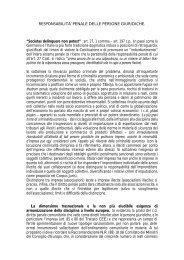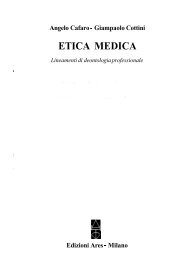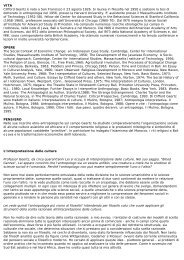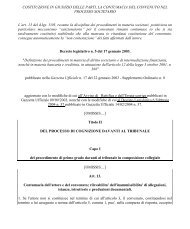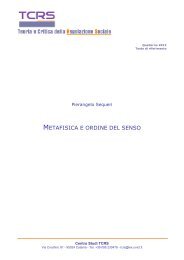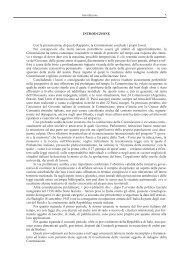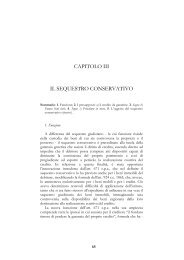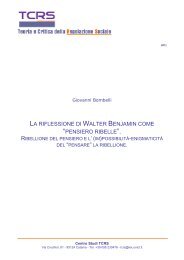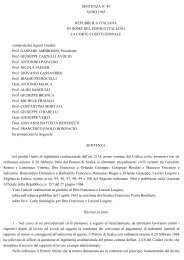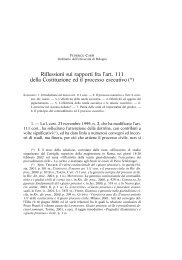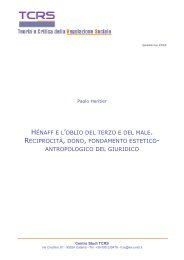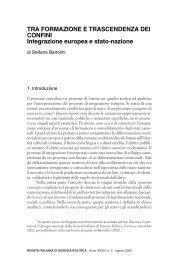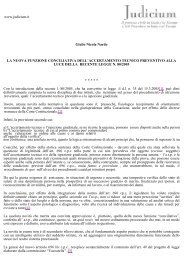FOGLI DI LAVORO per il Diritto internazionale 3 ... - Giurisprudenza
FOGLI DI LAVORO per il Diritto internazionale 3 ... - Giurisprudenza
FOGLI DI LAVORO per il Diritto internazionale 3 ... - Giurisprudenza
Create successful ePaper yourself
Turn your PDF publications into a flip-book with our unique Google optimized e-Paper software.
<strong>FOGLI</strong> <strong>DI</strong> <strong>LAVORO</strong> <strong>per</strong> <strong>il</strong> <strong>Diritto</strong> <strong>internazionale</strong> 3/2008<br />
of powers between the Federal State and the Länder. The<br />
Government were authorised to impart information relating to<br />
supra-regional matters and where nationwide information helped<br />
to resolve problems efficiently. Providing information in these<br />
circumstances did not exclude or impair the powers of the<br />
Länder governments to impart information themselves, nor did<br />
it prevent the administrative authorities from carrying out their<br />
administrative tasks.<br />
24. Furthermore, the Federal Government had to respect the<br />
principle of proportionality when imparting information.<br />
Statements affecting the very essence of the right guaranteed by<br />
Article 4 §§ 1 and 2 of the Basic Law had to be appropriate in<br />
relation to the cause for concern.<br />
25. As to the term “sect”, the Federal Constitutional Court<br />
found that the Government were not prohibited from using the<br />
term, which at the material time corresponded to the general<br />
understanding of new religious movements. Sim<strong>il</strong>arly, the use of<br />
the terms “youth religion” and “youth sect” described the<br />
preva<strong>il</strong>ing situation at the material time and the term “psychosect”<br />
reflected the Osho movement's meditation practices. These<br />
terms were employed without discriminatory differences of<br />
treatment in respect of these groups on grounds of their religion<br />
or belief. They complied with the obligation of the State to<br />
neutrality in matters of religious and ph<strong>il</strong>osophical beliefs and<br />
did not affect the very essence of the right guaranteed by Article<br />
4 §§ 1 and 2 of the Basic Law.<br />
26. In contrast, the use of the terms “destructive” and<br />
“pseudo- religious”, and the allegation that members of the<br />
movement were manipulated, did not satisfy the requirements of<br />
constitutional law.<br />
27. Even if the employment of such terms could not be<br />
criticised on the ground that it exceeded the powers of the<br />
Federal Government, the terms used nonetheless infringed the<br />
neutrality requirement and were thus not justifiable according to<br />
the proportionality principle. In particular, no substantiated<br />
reasons had been advanced which could have justified the<br />
statements regarded as defamatory by the complainants, nor<br />
were any such reasons otherwise apparent. That decision was<br />
served on the applicant associations on 30 July 2002.<br />
183



